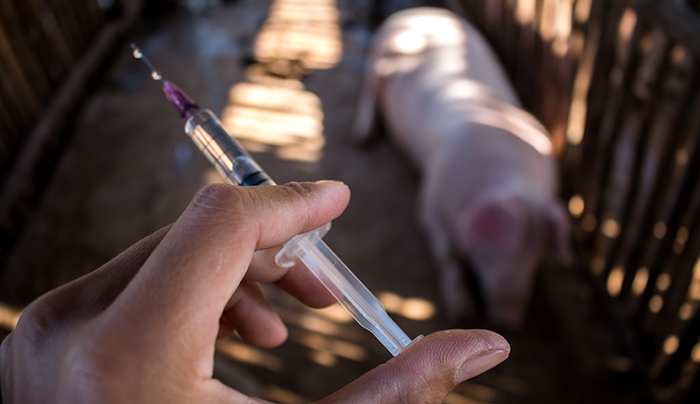Scientists are working to develop a vaccine to help guard the world’s pork supply as African swine fever ravages Asia’s pig herds.
Time magazine reported that the virus hadn’t been considered as high a priority for researchers until it turned up last year in China, home to half the world’s pig population.
Dr Luis Rodriguez, who leads the US government lab on foreign animal diseases at Plum Island, New York, said: “Today’s situation, where you have this global threat, puts a lot more emphasis on this research.”
One way to develop a vaccine is to kill a virus before injecting it into an animal. The disabled virus doesn’t make the animal sick, but it prompts the immune system to identify the virus and produce antibodies against it. This approach, however, isn’t consistently effective with all viruses, including the one that causes ASF.
Scientists have been working on another type of vaccine, made from a weakened virus rather than a dead one. With African swine fever, the puzzle has been figuring out exactly how to tweak the virus.
In Vietnam, where the virus has killed 3.7 million pigs in six months, the government said this summer it was testing vaccines but provided few details of its programme. In China, the government indicated scientists are working on a vaccine that genetically alters the virus, an approach US scientists have been pursuing as well.
The U.S. Department of Agriculture said it recently signed a confidential agreement with a vaccine manufacturer to further research and develop one of Plum Island’s three vaccine candidates. The candidates were made by genetically modifying the virus to delete certain genes.




